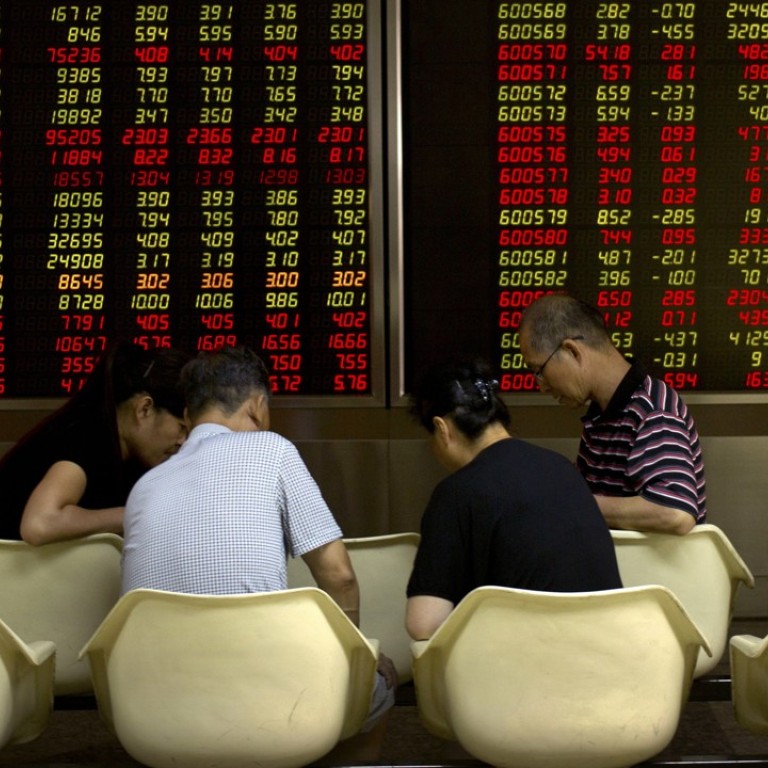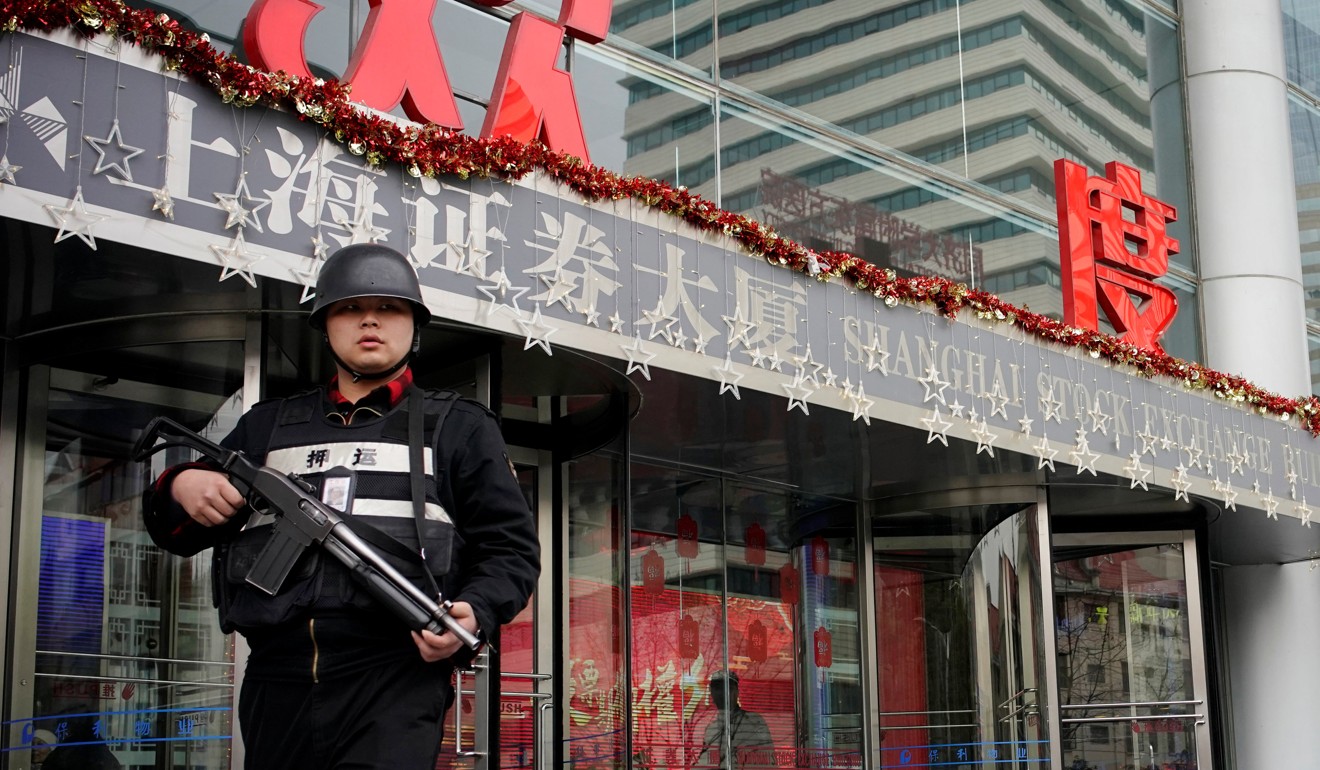
Bargain hunters are nowhere to be seen as Chinese stocks trade near 2016 lows
Even dip buyers do not want to wager on Chinese stocks right now.
The benchmark Shanghai Composite Index dropped by 0.3 per cent to 2,656.11 at the close on Wednesday, just above a low of 2,655.66 set in January 2016 on the back of a rout that erased US$5 trillion in market capitalisation. A breach of that level will take the gauge to a four-year low.
The measure has dropped by 20 per cent so far in 2018, making it the worst-performing major stock gauge in the world. Souring sentiment has also spilled over to Hong Kong, with the Hang Seng Index technically entering a bear market on Tuesday after falling 20 per cent from a record high in January.
It will take some time for stocks to bottom out, according to Xun Yugen, a strategist at Haitong Securities. Xun and his team were ranked first for strategy research on Chinese equities by New Fortune magazine last year.
Investors will need to wait for inflection points in earnings growth and financial deleveraging, although equity valuations have already been battered, he said.
While listed companies have spent a record 24 billion yuan (US$3.49 billion) buying back shares so far this year, and the Chinese Academy of Social Sciences, a top think tank that advises policymakers, has pointed out emerging investment values, the country’s 140 million investors are not taking any notice.

The turnover on the Shanghai exchange slipped to a four-year low of 91.1 billion yuan on Wednesday, the third time it has fallen below the 100 billion yuan mark over the past three weeks.
And instead of buying the dip and betting on a quick rebound, traders were pulling out of some stocks that had held onto solid gains. Anhui Conch Cement, China’s biggest maker of the building material, suddenly tumbled by 10 per cent within three days this week on rumours that output restrictions on polluting industries would be scrapped. Before the losses, Anhui Conch had gained 23 per cent this year.
On the other hand, bargain hunting has already proved painful for punters. A bounce last month spurred by the government stepping up investment in infrastructure projects to bolster growth was short-lived before sell-off resumed to send stocks even lower.
This means the roller-coaster ride Chinese stocks are on will continue to unnerve investors. The People’s Bank of China, the country’s central bank, has made it clear there will be no monetary stimulus, even as the Trump Administration threatens to impose tariffs on another US$267 billion worth of Chinese goods, which will further cloud China’s growth outlook.
Meanwhile in Hong Kong, stocks dropped for a sixth day in a row on Wednesday to a fresh 14-month low, as the mainland’s stock market weighed on sentiment.
The Hang Seng Index dropped 0.3 per cent, or 77.51 points, to 26,345.04. The Hang Seng China Enterprise Index fell 0.9 per cent, or 94.39 points, to 10,238.77.
Pharmaceutical stocks were among the worst performers after Chinese media reported that the government plans to introduce policies to reduce drug prices and tighten supervision of the sector.
Premier Li Keqiang said on Tuesday that the food and drug industry should be more tightly regulated because of they affect people’s lives and safety.
Blue-chip Sino Biopharmaceutical erased 14.4 per cent to HK$7.5, marking a nine-month low, while Shijiazhuang Pharma Group plunged 9.7 per cent to HK$16.7, a seven-month low.
“Drug stocks have also accumulated relatively large price gains so investors might want to cash in and lock profit,” said Ben Kwong, executive director and head of research at KGI Group.
Other big losers of the day included casino stocks such as Galaxy Entertainment Group, which has fallen six days in a row to a three-month low of HK$45.7. Sands China also dropped to a two-year low of HK$31.7.
“Brokerages have published reports suggesting to sell the stocks,” said Kwong. “The price to earnings ratios of the stocks are also relatively high so the stocks have room for more drops.”
Morgan Stanley, Deutsche Bank and Credit Suisse have also lowered the target prices of these stocks.


